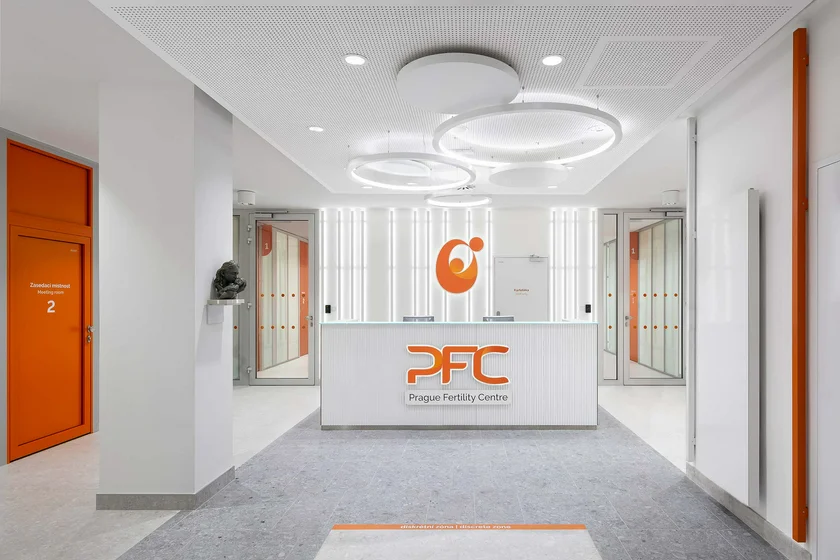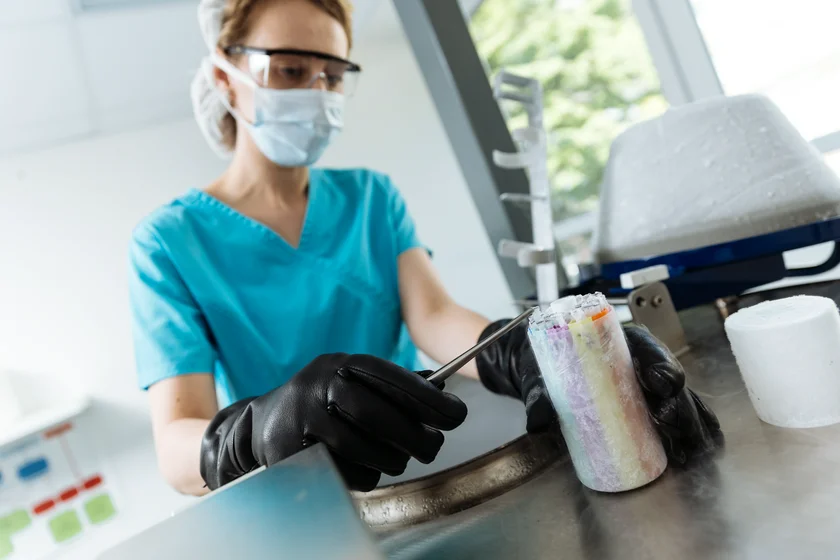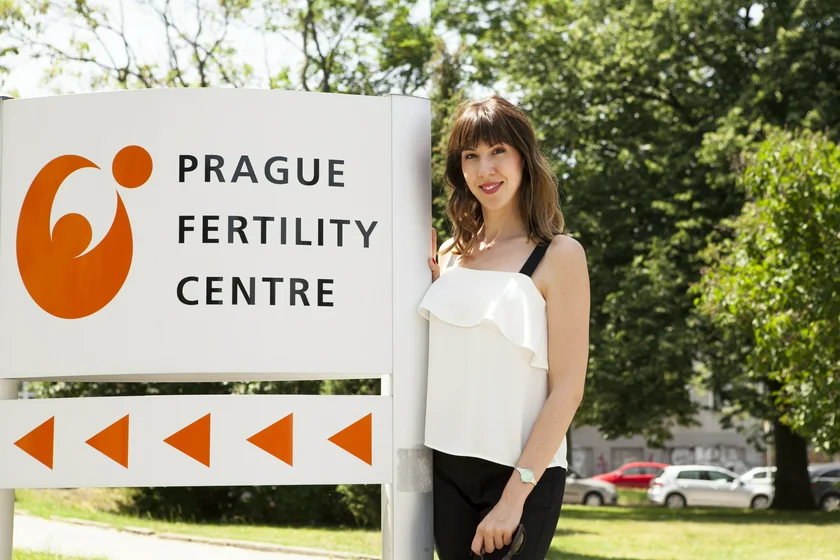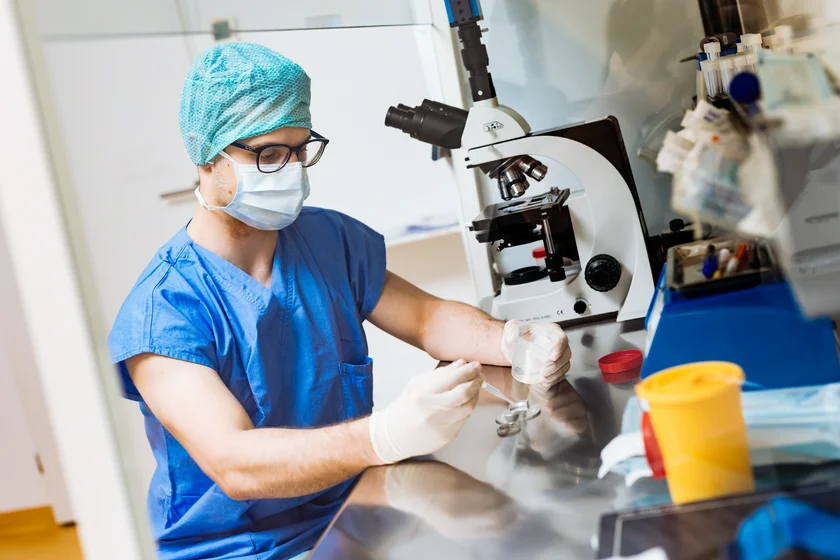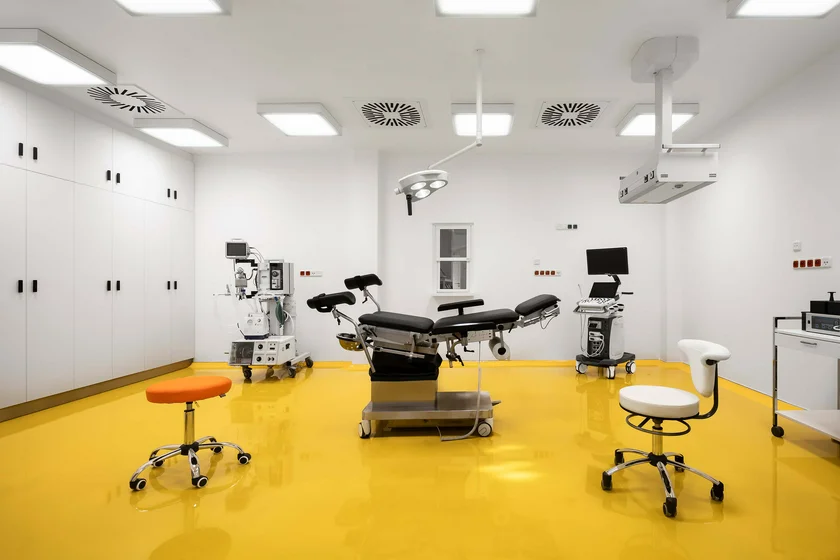In 1982, Czechoslovakia announced the birth of its first “test-tube baby,” the second successful in-vitro fertilization (IVF) after the birth of Louise Brown in Britain four years earlier. The country would continue to establish its reputation as one of the foremost European destinations for fertility treatment across the decades.
Today the Czech Republic remains a world-class destination for fertility patients boasting top IVF specialists, a high standard of healthcare, a strategic location in the heart of Europe, and affordable treatments.
Among the dozens of assisted-reproduction clinics in the Czech Republic, Prague Fertility Center (PFC) stands out as one of the most innovative, treating approximately 2,500 couples each year, in its 12 years of existence.
PFC’s patients hail mainly from all over Europe, America, Canada, the U.K., Australia, Russia, and the Middle East but the clinic has also helped patients from Asia, Africa, and South America.
We recently spoke with MUDr. Jan Jonáš, an IVF specialist at PFC who answered some of the most common questions about egg donation and IVF in the Czech Republic as well as how prices and policies for these procedures differ compare to those around the world.
How much does fertility treatment cost in the Czech Republic?
According to Dr. Jonáš, it’s not unusual to hear heartbreaking stories of couples who spend their fertile years and savings (or even take out huge loans) trying to conceive.
Clients from the U.S. in particular represent a growing market for PFC, many of whom come to the Czech Republic because prices for IVF treatment in the U.S. are entirely cost-prohibitive.
Fertility treatment costs in the Czech Republic
- Average price of standard IVF with ovarian stimulation: USD 2,605
- Average IVF ICSI treatment price: USD 3,000
- Average price of IVF with egg donation: USD 5,676
- Average price for embryo donation: USD 3,000
“Prices in the U.S. for instance, are so high that many clients cannot believe they can have quality treatment with us for €5,000 (CZK 126,335) when the same treatment can cost ten times more at home,” Dr. Jonáš says.
Patients with Czech insurance seeking fertility treatments may qualify to have some of these costs covered by health insurance. The Czech government recently announced that it would cover artificial insemination for women up to 40 and egg freezing for oncology patients.
What is the waiting time for an egg donor at a Czech fertility clinic?
Dr. Jonáš says a large number of clients come to the Czech Republic and PFC in particular because they cannot afford the long waits or enormous costs of doing IVF in their home countries.
In the UK, for example, Dr. Jonáš says the waiting time for treatment with the woman’s own cells is around two years with the NHS, while egg donation can take as long as five years. “In the meantime, their condition worsens and cells continue aging,” he says, adding that PFC understands that time is critical when going through fertility procedures.
In 2021, PFC opened another floor of facilities to offer greater comfort and faster response to its patients. It currently has two fully functional operating rooms and laboratories and there is no waiting time for IVF treatment with a patient’s own eggs or an egg donor.
How long does treatment take at a Czech clinic?
Depending on the type of treatment, patients may spend a little as 3 days or as long as 20 days in Prague. Those patients who are located in Europe typically prefer (and are able) to travel for a personal consultation first and have everything planned in one day, then travel again for the actual treatment which takes 5 to 8 days.
Those from greater distances such as the U.S. who are traveling to Prague for fertility treatment typically prefer to be in the Czech capital for the entire duration of treatment, approx. 20 days, and get all preventive and diagnostic exams done in Prague. Unless they travel for an egg donor IVF cycle, in which case they can spend as little as 5 to 8 days in Prague. Coming to Prague for Embryo Donation from anywhere in the world can be done in a short stay of 3 days.
Are egg and sperm donors anonymous in the Czech Republic?
In the Czech Republic donation is anonymous unlike in the UK, for instance, which Dr. Jonáš tells us leads to another issue. “In countries with an open donation, fewer people are willing to donate their cells and the wait times are much longer,” says Dr. Jonáš. “We have the largest donor program at PFC; we can help patients during their next menstrual cycle after they contact us,” he says.
What information about the donor do clients receive?
By Czech law, information cannot be exchanged between donors and recipients. However, most centers will be able to reveal basic characteristics. PFC can reveal the age, blood type and group, physical characteristics, and educational background.
Who can have fertility treatment in the Czech Republic?
Another advantage of seeking treatment in Prague is that assisted reproduction legislation in the Czech Republic is relatively liberal compared to other European countries. While Czech law doesn’t allow IVF treatment for gay couples or single women, it does allow cell donation – which is not permitted in Germany and Austria.
“Most patients end up traveling to do every test and scan with us because there's such a big taboo around egg and sperm donation in other countries,” says Dr. Jonáš.
Is there an age limit for fertility treatment in the Czech Republic?
While in many other European countries physicians are not flexible enough to help a woman beyond 40 with fertility (understandably, due to the overall higher pregnancy risks), Czech legislation allows fertility treatment of heterosexual couples (regardless of whether they’re married or not) where the woman is not older than 49 years of age.
“Most of our patients are beyond 38 years of age,” says Dr. Jonás, adding that the majority have already had unsuccessful treatment at home or can’t have treatment in their home country due to the legislation (cell donation, age limit).
Are there other limiting factors for fertility treatment at Czech clinics?
Most private centers including PFC encourage patients to be under BMI 34 for hormonal stimulation and egg collection in order to have a successful treatment.
How many embryos are usually transferred?
According to Dr. Jonáš, this is very individual. “The goal is to increase the chances of achieving a healthy pregnancy. Sometimes it’s recommended to transfer two embryos but oftentimes it’s contraindicated. We will review every woman’s history independently and recommend the best course of action but in general, we are able to transfer one or two embryos.”
Is it possible to do genetic screening at a Czech clinic?
Preimplantation Genetic Testing (PGT), used to detect a chromosomal abnormality, is a somewhat controversial area of fertility.
“In the Czech Republic, genetic testing is allowed by law and recommended for couples who know that one or both of them carry a specific chromosomal abnormality and want to prevent passing it to their offspring,” says Dr. Jonáš.
It’s also recommended for couples who have had repeated miscarriages; or that, due to the biological age of their cells, would rather prevent any chromosomal malformations.
Do Czech centers offer fertility treatment guarantees?
According to Dr. Jonáš, most of them do. PFC was the first center to offer a guaranteed egg donor program, which most clinics adopted later on as well. Nowadays, PFC continues to offer a guarantee on an individual basis.
PFC, in particular, has high success rates thanks to the gynecological and fertility treatment expertise, as well as to the laboratory methods and diagnostics that are used prior to the IVF procedures, such as assisted hatching, vitrification, egg/sperm freezing, time-lapse embryo monitoring, microfluidic chip-based sperm sorting, Testicular Sperm Extraction (TESE), mini IVF, DuoStim, endometrial receptivity assessment, and preimplantation genetic diagnosis, among others.
Is it necessary to speak Czech or translate medical records into Czech in order to receive fertility treatment in the Czech Republic?
Czech gynecologists usually speak at least one or two foreign languages. Professionals at PFC speak 12 different languages and are able to receive medical files and communicate with patients in their mother tongue.
Is it possible to begin treatment with fertility medication at home?
PFC can help with prescriptions and equivalent/substitute commercial brand recommendations depending on where patients reside. They can also ship a patient’s medication to anywhere in Europe, the U.K., Canada, and the United States.
What are the advantages of traveling to Prague for fertility treatment?
Dr. Jonáš believes the general benefits of having fertility treatment in Prague are “affordable costs, quality of treatment, being able to do all diagnostic and preventive testing under one roof, treatment in different languages, staying in a developed country and cosmopolitan city with all services and advanced infrastructure.”
What's the most important factor in selecting a fertility clinic?
Above all Dr. Jonáš believes that any clinic should first and foremost treat patients as individuals and work with them to try and achieve their family plans. “We always listen to the couples' wishes and ensure, above all, that there is a healthy pregnancy.”
This article was written in association with Prague Fertility Center. Read more about our sponsored content policy here. PFC prides itself on offering a professional-but-caring attitude, a place where treatment has a personal approach even before you set foot inside the clinic. Home to a team of respected specialists, PFC conducts its own embryology research and uses a tailored fertility program for each patient according to their infertility history. This often involves specific testing, gynecological procedures, and fertility techniques such as Priming, DuoStim, and ERA testing, among others.












 Reading time: 7 minutes
Reading time: 7 minutes 

